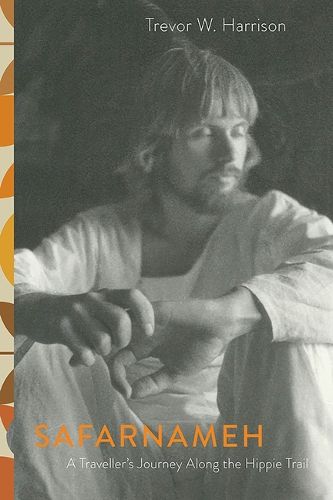Readings Newsletter
Become a Readings Member to make your shopping experience even easier.
Sign in or sign up for free!
You’re not far away from qualifying for FREE standard shipping within Australia
You’ve qualified for FREE standard shipping within Australia
The cart is loading…






Safarnameh-an Urdu word meaning an account of a journey-is the story of Trevor Harrison's overland trip from Turkey to India, a route taken by somewhere between 2 million and 6 million young people from Western countries during the 1960s and 1970s, until the Iranian Revolution and subsequent regional conflicts rendered the overland trek impossible. This first-person account amplifies, sometimes confirms, and occasionally challenges prevailing images of those who made the journey to India during that time. Based extensively on written observations made at the time, the book explores the physical, psychological, and emotional impact of travelling and its lingering echoes. Woven throughout the book are comments and insights drawn from forty-eight in-depth interviews with people from several different countries who made the overland journey to India during roughly the same period. Though framed around a personal memoir, Safarnameh situates one individual's experience in the broader historical, cultural, and socio-political context of the time.
$9.00 standard shipping within Australia
FREE standard shipping within Australia for orders over $100.00
Express & International shipping calculated at checkout
Safarnameh-an Urdu word meaning an account of a journey-is the story of Trevor Harrison's overland trip from Turkey to India, a route taken by somewhere between 2 million and 6 million young people from Western countries during the 1960s and 1970s, until the Iranian Revolution and subsequent regional conflicts rendered the overland trek impossible. This first-person account amplifies, sometimes confirms, and occasionally challenges prevailing images of those who made the journey to India during that time. Based extensively on written observations made at the time, the book explores the physical, psychological, and emotional impact of travelling and its lingering echoes. Woven throughout the book are comments and insights drawn from forty-eight in-depth interviews with people from several different countries who made the overland journey to India during roughly the same period. Though framed around a personal memoir, Safarnameh situates one individual's experience in the broader historical, cultural, and socio-political context of the time.